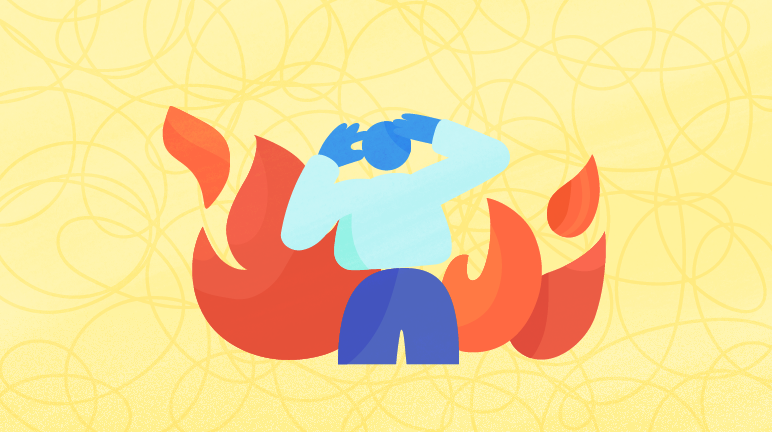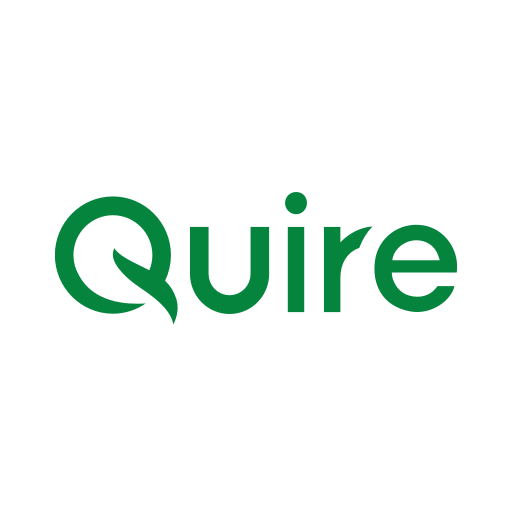productivity tips · Jun 16, 2022
Destructive Productivity is Serious and How to Avoid it?

In a world where the lines between work and home continue to blur, it's more important than ever to be productive. However, being productive is not always easy.
In fact, for many people, productivity can quickly become a source of stress and eventual burnout. This is often referred to as "destructive productivity."
In this blog post, we will discuss what destructive productivity is, and how you can avoid it through team collaboration and task management software.
What is destructive productivity?
Simply put, it is the act of being productive to the point of self-destructive behavior. This can manifest in several ways, including working long hours without breaks, skipping meals, or foregoing sleep.
Destructive productivity often leads to burnout, which can have serious negative consequences on both your personal and professional life.
The other kind of destructive productivity is where you try and do too many tasks in a day. This isn’t so much self-destructive as self-defeating. This is why, in its way, it’s destructive.
When you focus on one task at a time, working towards a clear goal, you can get more done.
So, how can you avoid destructive productivity? One way is to ensure that you are taking breaks throughout the day. It is also important to make time for activities that you enjoy outside of work.
Additionally, task management software can help you stay organized and on track, without overloading yourself with tasks. Finally, team collaboration can help lighten your workload and provide support when needed.
If you are struggling with destructive productivity, remember that you are not alone. By implementing some of the strategies mentioned above, you can take back control of your productivity and avoid burnout.
Read more on 7 productivity tips to avoid burnout at work
How destructive productivity manifests and what to do about it
Destructive productivity is a term used to describe a set of behaviors or mindsets that can lead to sub-optimal outcomes, even though the intentions may be good.
This could manifest in different ways, but some common examples include:
- Trying to do too many things at once and not being able to focus on any one thing properly. Which, generally speaking, leads to mistakes and poor-quality work.
- Working long hours without taking breaks, leads to burnout
- Not delegating tasks and trying to do everything yourself. You are using not other people's skills and abilities to ensure the work gets completed on time.
- Taking on more than you can handle and then not being able to deliver on your commitments is frustrating for both you and the people counting on you.
- Constantly striving for perfectionism and never feeling like anything is good enough
All of these behaviors can lead to sub-optimal outcomes because they prevent you from being able to focus on what's important, or from taking care of yourself. They can also lead to mistakes and poor work quality.
How can you tell if you're being productive or destructive?
Here are some signs that you might be heading down the path of destructive productivity:
- You feel like you're always behind and can never catch up.
- You're constantly trying to do more and more, but never feel like it's enough.
- You're working long hours without taking breaks and starting to feel burnt out.
- You're taking on more than you can handle, and not meeting your commitments.
- You're striving for perfectionism and never feeling like anything is good enough.
If any of this sounds familiar, then it might be time to take a step back and reassess your approach to work.
Read more on how to avoid languishing at work
How to avoid destructive productivity
The best way to avoid destructive productivity is to find a balance between your work and your personal life and factor in time for rest into your schedule.
Other tips include allowing yourself time off when you need it, setting boundaries with your colleagues or manager, focusing on quality over quantity when it comes to your work, and taking care of your mental health by engaging in activities that you enjoy outside of work.
If you're struggling with destructive productivity, there are a few things you can do to get back on track.
First, try to find a balance between work and your personal life. It's important to have time for both to avoid burnout.
Secondly, focus on quality over quantity when it comes to your work. Take your time and make sure that what you're doing is of the best quality possible.
Thirdly, take care of your mental health by engaging in activities that you enjoy outside of work. This can be anything from reading a book to going for a walk or spending time with friends and family.
Lastly, and following on from our second point, if you work with a team get better at collaboration. Sometimes it’s easier to work with your team and get the job done than trying to do it alone.
You can do this using task management software. In fact, with task management software you will not only be able to better collaborate with your team, but you will also be able to better organize your days.
How can task management and team collaboration help avoid destructive productivity?
There are a few key ways in which task management and team collaboration can help avoid destructive productivity:
Keep everyone on the same page
By keeping everyone on the same page, task management software ensures that everyone is aware of what needs to be done and when. This helps avoid confusion and duplication of effort.
Share ideas and work together
Team collaboration allows for ideas to be shared openly and honestly, without fear of judgment or criticism. This open exchange of ideas leads to better decision-making and more productive outcomes.
Track progress and constantly improve
Task management systems help to track progress and identify areas where improvements can be made.
This allows for more efficient use of time and resources, leading to a more productive team overall. Implementing a task management system is an important step in avoiding destructive productivity within your team.
Stay organized
Task management software can help you stay organized. By keeping track of all your tasks in one place, you can ensure that nothing falls through the cracks.
This helps you to avoid missed deadlines and unfinished tasks and keeps your productivity on track.
Provide constructive feedback
Team collaboration software provides a platform for team members to give and constructively receive feedback. This helps to improve communication and avoid misunderstandings that can lead to conflict.
By using a task management and team collaboration tools, you can avoid the destructive productivity that can come from confusion, duplication of effort, and inefficient use of time and resources.
These tools will help your team to be more productive overall, leading to better results for your business.
Task management software can help you avoid destructive productivity in several ways. By keeping track of tasks and deadlines, improving communication between team members, and helping you stay organized, task management software can help you stay on track and get the most out of your team.
So why not give it a try? You might be surprised at how much it can help.
Implement task management software and help avoid destructive productivity
Task management software can help destructive productivity by allowing for team collaboration, improved communication, goal setting, and organization.
When team members can see each other's tasks and communicate about them, it allows the team to be more organized and on track. This is especially helpful when a project has multiple parts that need to be completed for the final product to be created.
In addition, task management software can also help with goal setting. By seeing what needs to be done for a goal to be accomplished, individuals can better break down the steps needed and create a timeline for completing the goal.
Lastly, good task management software will keep everything organized so that individuals don't have to search through emails or folders full of documents.
Quire is a task management system that helps you stay organized and on track. With features like real-time communication, subtasks, and file attachments, it’s easy to keep your team organized and focused on the task at hand.
Quire also offers team collaboration features, such as comments, @mentions, and task assignments. These features help to improve communication and avoid misunderstandings that can lead to conflict.
By using Quire, you can avoid the destructive productivity that can come from confusion, duplication of effort, and inefficient use of time and resources. With Quire, you can improve your team’s productivity and get more done.


